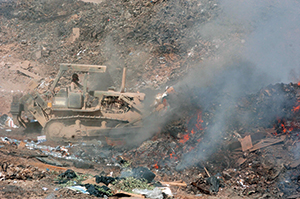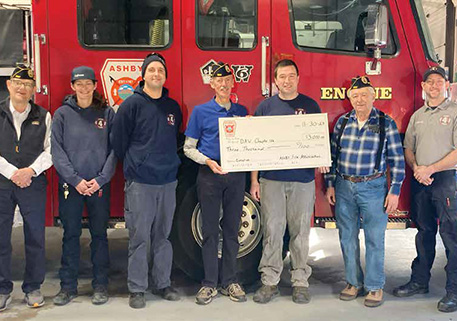 Congress and DAV celebrated last August when the Honoring our PACT Act was signed into law, ushering in a new era of benefits and health care for veterans exposed to harmful substances during military service. The Department of Veterans Affairs is in the midst of implementing the most significant expansion of veterans benefits in decades.
Congress and DAV celebrated last August when the Honoring our PACT Act was signed into law, ushering in a new era of benefits and health care for veterans exposed to harmful substances during military service. The Department of Veterans Affairs is in the midst of implementing the most significant expansion of veterans benefits in decades.
Rep. Mark Takano, then-chairman of the House Veterans Affairs’ Committee, said at a hearing in December that the massive bill will undoubtedly distress VA resources.
“The Honoring our PACT Act will be as massive as it is significant,” he said. “Given its transformative nature, it will, by definition, present implementation challenges and concerns.”
VA leaders told the panel that the agency is ready and eager to faithfully follow through on the law’s intent with a three-pronged approach.
“First, we must reach and inform every veteran who may qualify for these historic benefits,” said VA Under Secretary for Health Dr. Shereef Elnahal. “Second, we must build our capacity to better serve current veterans and those who we welcome into our system. And third, we must build the path for the future to include groundbreaking new research on toxic exposures.”
The comprehensive law adds more than 20 presumptive conditions for exposure to burn pits, Agent Orange and other toxic substances. Veterans who served in Vietnam, the Gulf War and conflicts after 9/11 stand to benefit, as do veterans exposed to radiation.
In December, the VA announced it would expedite processing for new claims under the PACT Act for veterans facing terminal illnesses.
“These veterans have stepped up to serve our country in the times when we needed them most — and now it’s our job to step up for them,” said VA Secretary Denis McDonough. “It’s the right thing to do to get these heroes the world-class health care and benefits they’ve earned as soon as possible, and that’s exactly what we’re going to do.”
The agency began processing all other pending toxic exposure claims on Jan. 1.
DAV has been a driving force on the issue. It led the charge in advocating for veterans exposed to burn pits by bringing the subject to the public’s attention in 2008 and establishing a pilot program that was the forerunner to the Burn Pit Registry, which the VA adopted in 2014.
“Enacting this life-changing law was only the beginning of a long journey of pursuing justice for exposed veterans,” said National Commander Joe Parsetich. “It’s now on DAV to hold VA’s feet to the fire and ensure those veterans are properly cared for.”
Veterans seeking to submit a PACT Act claim should reach out to a DAV benefits advocate by visiting BenefitsQuestions.org.
Find updates to other major veteran legislation by joining DAV CAN (Commander’s Action Network) at DAVCAN.org.






